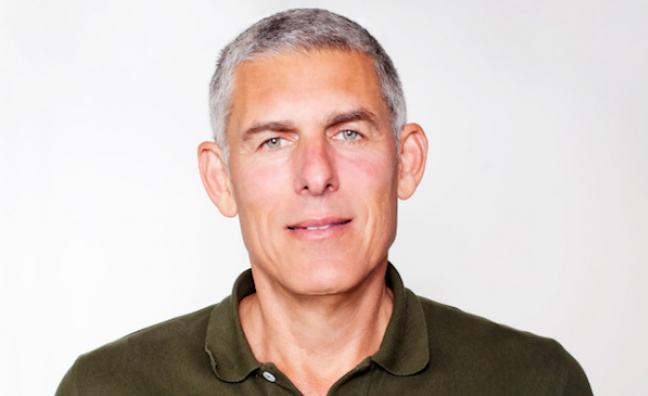YouTube Music Premium has gone live in the UK, with Lyor Cohen hailing the subscription service as a gamechanger for the music industry.
The subscription service went live in the US and four other territories last month, and debuted in the UK and 11 other countries, mainly in Europe, at 4pm UK time today.
Shelling out the now-standard £9.99-per-month will give fans access to an ad-free audio and video music service – although with the emphasis, perhaps surprisingly, very much on audio – that essentially combines the Google Play Music and YouTube experiences. YouTube Premium (formerly YouTube Red) also launches today for £11.99-per-month with additional features, including all videos ad-free. The Beatles full catalogue will also be available across YouTube from today.
The move puts YouTube in direct competition with other streaming giants such as Spotify, Apple Music and Amazon, although Lyor Cohen – legendary former label exec and now YouTube’s global head of music – told Music Week there was plenty of room for another streaming service.
“First of all, it’s not a winner-takes-all category,” said Cohen. “And also it’s a relatively new category, with plenty of room to grow. Certainly we’ll be very happy to have any customer, but the customers that we need to focus on are those that are most leaned-in to YouTube, that are already in our funnel and engage with the product.”
With 1.8 billion users, YouTube has a larger audience than any other music streaming company – but the vast majority of those consumers use the ad-funded tier, which the music industry has regularly criticised for not paying enough money to rights-holders.
Cohen said revenues would improve as the subscription tier grows and said the industry had already welcomed the new service as competition between Spotify and Apple Music reaches new heights.
“Even though advertising is core to [Google] they have built this service,” he said. “YouTube is very, very focused on creating this experience. It’s really, really good and we’re getting a lot of positive feedback from the industry.
YouTube declined to reveal subscriber numbers from its first month of operation, although YouTube’s director of product management, music products, T Jay Fowler insisted: “We’re doing well.”
“We have only been in five markets to date with YouTube Music and it’s been growing in a really great way,” he said. “We are super excited with this new product offering, which rounds out more of the consumers’ requests. This is an alternative, this is driving consumer choice and we think this is a significantly differentiated experience to what’s in the market today.”
Fowler said the emphasis on audio rather than video was deliberate.
“There was some expectation because of the pull of the YouTube brand it would be video-biased, so there is delight there from consumers,” he said. “From a metrics perspective, we’re seeing really good engagement in terms of what people are consuming and listening to, that’s been fantastic. We’re not done, there’s a lot of investment that we need to make, specifically with Google Play Music subscribers that were briefly concerned that this was the replacement for what they had. But, overall, reception has been incredibly positive and it’s only been in the hands of a percentage of users for the last couple of weeks. This is a whole new world.”
The launch follows a notable thaw in relations between YouTube and the music biz, following initiatives such as the service's decision to add songwriter credits and expanding its Artist On The Rise programme. Senior figures in the UK music business have welcomed YouTube’s arrival in the market.
BPI CEO Geoff Taylor, who has never been afraid to criticise Google or YouTube over the so-called ‘value gap’, said: “It's great news for music fans and for the business that YouTube is launching a subscription service with innovative new features. This will bring even more competition and choice into the subscription market and, if YouTube can convert significant numbers of free users into subscribers, it will help to accelerate market growth.”
Dua Lipa’s co-manager Ben Mawson of Tap Management said: “YouTube have been an invaluable partner for Dua Lipa and Tap and we are very grateful for their significant part in helping to break Dua globally. I can only see YouTube becoming even more important to us as a management company and record label as they move into the subscription business.”
The likes of Max Lousada and Willard Ahdritz had previously welcomed the service.
Fowler and Cohen stressed the level of personalisation on the service would make for a distinct experience and help music discovery, with recommendations and playlists changing according to time of day, location and habits.
“Users always say, ‘I use service X and YouTube’,” said Fowler. “Now you don’t have to, it’s all right here. We’re showing great traction with our target demographic, YouTubers. But we’re also growing slightly older which is really interesting to us. As you would expect Android is a big growth area for us, it’s been under-served in the music space for a long time and we’ve built a first-class experience for Android.”
Cohen said a big marketing campaign was planned to push the product and help YouTube gain entry into the crowded audio streaming marketplace. And he said the music industry stands to benefit if YouTube Music succeeds.
“My primary focus is [bringing] diversity to distribution,” he said. “If there’s four distributors, the value will creep back to the creators. If it’s too highly consolidated, it’s a problem.”











